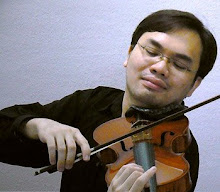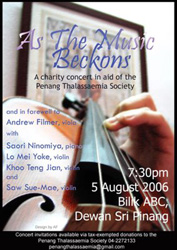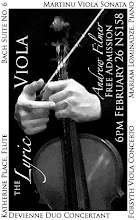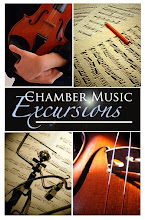We start off as students, and many of us get into this about whether we’re first clarinet or second clarinet, and whether we’ve some level of music exams that too many young people equate to actual musicianship. Then we’re at a stage when hey, this music thing could be serious, and there’s this massive planning about travelling to get high level lessons, or thinking about investing in an instrument and how much it’s going to cost and what we can afford. And suddenly you find out there’s a bow or a mouthpiece that you never knew you needed and you can’t imagine living another day without it. And then you enter university studying music, or dive straight in to the working world and you try to squeeze 25 hours out of a day which stubbornly wants to stick to 24, struggling in personal practice in that push to be all you can be while teaching or working part time to to make sure you have enough to get something to eat. You start thinking about new applications, auditions, competitions. As you get more into the industry, you realize that if you want to be involved in certain projects you’ve got to take a role in actually organizing it, and then you get into scheduling of rehearsals and booking a hall and licensing and sponsorship. And then it’s networking, meeting the right people, worrying about whether you said the right things at the right time, and self-examining which part of each of us is most useful in fitting in to this giant jigsaw puzzle.
Investments. Practice rooms. Arrangements. Scheduling. Organizing. Networking. Public relations. All these things which make up being part of making music, and all necessary in moving ahead in the world. It’s a real world, and these are all elements of that reality.
But the best parts of making music are the things that don’t really get mentioned when we think about a career path. For many it’s the parents that start us all off on some instrument because they think it’s going to good for you not so much as a future job but in developing who we are – and for some, when that money for lessons doesn’t come easy. It’s about the teacher who knows better than to argue with you wanting that exam certificate but tries to make sure that in process you get more inspired about the music itself than the piece of paper. The friend who knocks on the door of your practice room and reminds you to take a break before your arms fall off or your lungs explode. The fellow musicians who welcome you back when you return after your studies elsewhere – or welcome you in a new role as a colleague and partner. And musicians who introduce you to others and help you to find a place in their world. Sometimes because some time, somewhere, somebody did the same for them. Sometimes because some time, somewhere, somebody didn’t do the same for them, and that’s the opportunity to make the world a little bit better than the way they found it.
For every one of these very special people, there are probably a dozen backstabbing others, or more often those who are just more in it for themselves than anything else. But then, that’s exactly why we call them special.
People. At the end of the mad race for success, that’s what music is really all about.






1 comment:
:) like they say: its all in the journey...
very glad you've been part of mine these past years
miss you!
Post a Comment